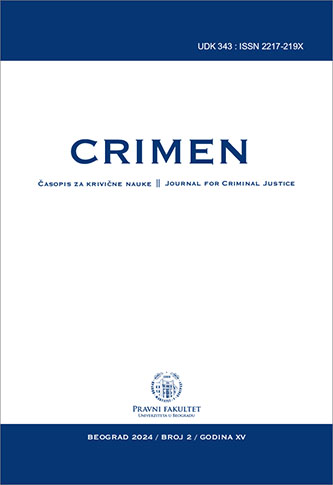KRIVIČNOPRAVNE OSNOVE POLITIČKE REPRESIJE U SRBIJI 1944–1985.
CRIMINAL LAW GROUNDS FOR POLITICAL REPRESSION IN SERBIA 1944‒1985
Author(s): Srđan CvetkovićSubject(s): Politics / Political Sciences, History, Law, Constitution, Jurisprudence, Criminal Law, Human Rights and Humanitarian Law, Political Theory, Political history, Social history, Recent History (1900 till today), Politics and law, WW II and following years (1940 - 1949), Post-War period (1950 - 1989), History of Communism
Published by: Правни факултет Универзитета у Београду
Keywords: Criminal legislation; Human rights; Political misdemeanors; Socialism; Serbia; Yugoslavia
Summary/Abstract: Criminal legislation in Yugoslavia, especially its segments focused on protection of the state and social order, followed the general social development of socialist Yugoslavia. It wobbled between the need for repression and maintaining the political monopoly of the Communist Party and propaganda’s aim of presenting society as democratic. Repression intentions had to, in due course, be shaped withing the framework of the rule of law, legislation, and codes of the criminal law expertise. The basic origins of the criminal law were its instrumental consideration (especially 1944‒1951), foreign policy consideration and the level of resistance in the country. Key for understanding remains ideological-political factor and the need of ruling party for maintaining monopoly on power and ideology, resisting foreign and domestic challenges. Almost all historians of the criminal law has agreed that it followed of concept of democratic self-management socialism and, depending on the current political time, the interests of the Party, foreign and domestic factors, the concept of the rule of law was pushed aside to the smaller extent.
Journal: CRIMEN - časopis za krivične nauke
- Issue Year: XV/2024
- Issue No: 2
- Page Range: 190-206
- Page Count: 17
- Language: Serbian

